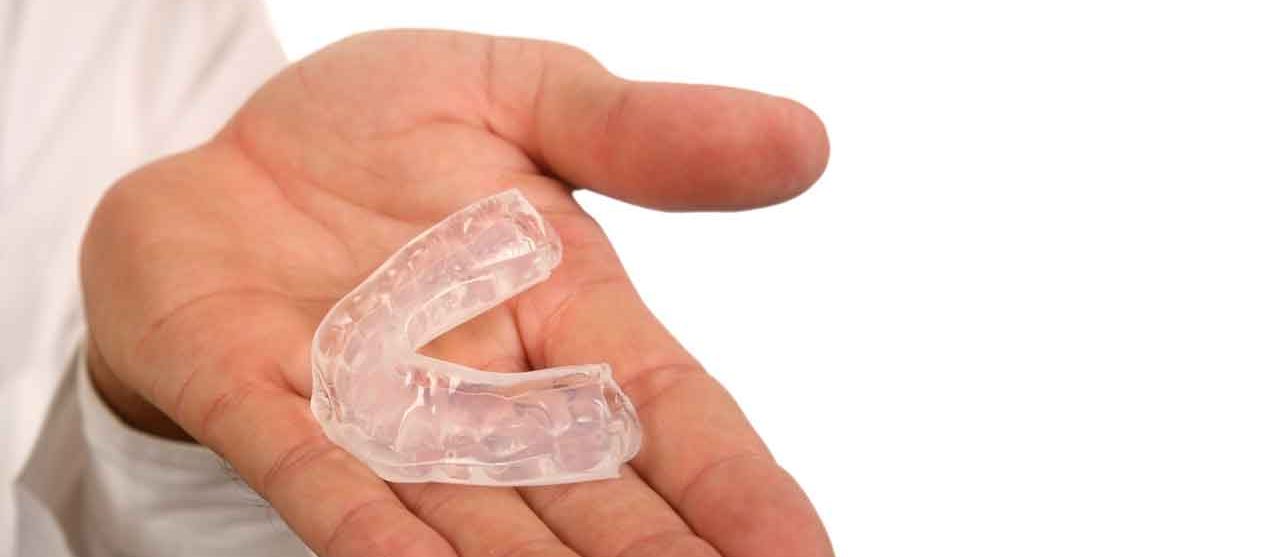Do You Need a Mouth Guard for Teeth Grinding?

If you’re grinding your teeth in your sleep, see whether you have sleep apnea or another dental problem before you invest in a mouth guard for teeth grinding.
Maybe your dentist looked in your mouth and saw that your teeth are wearing down. Maybe you wake up with a dull headache or sore jaw. Sometimes your bedmate will hear a grinding sound.
You’re grinding your teeth without knowing it, a problem with the medical name of bruxism.
People occasionally grind their teeth when they’re anxious during the day. If it happens when you sleep, the most likely cause is missing or crooked teeth, an abnormal jaw, or a sleep problem like sleep apnea.
YOU MIGHT ALSO LIKE: The Best Ways to Use Melatonin
Mouth guard for teeth grinding
Your dentist may offer to take a mold of your mouth and suggest a tooth guard for sleeping. The mouth guard for teeth grinding will protect your teeth from cracking or being worn down. But it will be expensive, and you’ll have to use it nightly.
As a first move, you might try an inexpensive over-the-counter mouth guard for teeth grinding to see if you notice a difference before you invest in one that is custom made.
More importantly, you need to figure out why you’re grinding your teeth in your sleep and address the cause. Do you also snore loudly? Your bedmate will be grateful if you investigate ways to stop.
Snoring and waking with a dry throat or headache are two signs of sleep apnea. Other signs are falling asleep during the day, feeling depressed, or often tired despite spending enough hours in bed. You likely won’t need a tooth guard for sleep if you treat any sleep issue.
Why you might grind your teeth
As you sleep, your airway may collapse or be blocked because of fat or abnormalities in your throat and nasal passages. Your breathing pauses and becomes shallow, pushing you out of deep sleep. That’s when you may grind your teeth.
Although you won’t actually wake up, you end up sleep-deprived and become more vulnerable to:
- Depression
- Type 2 diabetes
- Strokes
- High blood pressure
- Heart failure
- Car accidents from sleepiness at the wheel
A night of oxygen deprivation can cause fatigue throughout your day, research suggests.
How to stop grinding your teeth
- Losing even five to 10 pounds can help, although not all snorers or people with sleep apnea are overweight.
- Avoid alcohol and heavy snacks for four hours before bedtime.
- Try sleeping on your side, with pillows propped behind you, and between your thighs.
- Sleep with a pillow under your neck, so your neck lies straight line rather than tilted up.
Sometimes the main problem is in your nose. The cause for blocked nostrils may be allergies, polyps, a deviated septum, or enlarged adenoids or turbinates. You might try over-the-counter decongestants or antihistamines, irrigating your nose with saline at bedtime, or nasal sprays.
Small plastic devices can keep your nostrils open. They include strips you place on the outside of your nose or tiny plastic cones or boomerang-shaped devices you insert inside your nostrils.
Make sure you clean bedding with hot water and use mattress and pillow covers that block dust mites. Run an air purifier or the air conditioner to clean the air. Banish dogs and cats from your bedroom. You might temporarily board your pet elsewhere to see if your symptoms change.
You can get tested for sleep apnea at home. If you get a prescription for a continuous positive air pressure (CPAP) machine, you might use a nose mask rather than a mask that covers both your mouth and nose. Ask your doctor which is more likely to help keep you from grinding your teeth, so that you don’t need a tooth guard for sleep.
Updated:
January 17, 2024
Reviewed By:
Janet O’Dell, RN